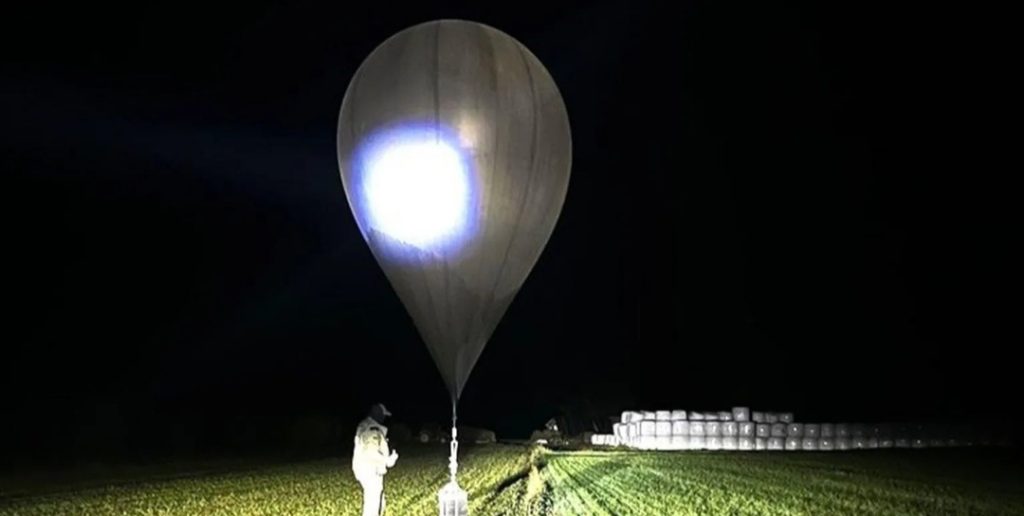
Esther Imonmion
Flights at Lithuania’s main international gateway, Vilnius Airport, were brought to a halt over the weekend after a swarm of balloons carrying thousands of packs of contraband cigarettes entered the country’s airspace from neighbouring Belarus, forcing aviation authorities to suspend operations for several hours.
According to the National Crisis Management Centre (NCMC), about 25 meteorological balloons were detected crossing into Lithuanian territory late Saturday, with at least two drifting directly above the airport, triggering an immediate shutdown of air traffic. The airport resumed full operations early Sunday at 4:50 a.m. local time, but not before the disruption led to the cancellation or diversion of 30 flights, affecting nearly 6,000 passengers.
Lithuania’s State Border Guard Service confirmed that 11 of the balloons, laden with roughly 18,000 packs of black-market cigarettes, had been recovered, including seven found over the Vilnius area that carried an estimated 12,000 packs. The smuggled goods were believed to have originated in Belarus, a country long accused of enabling contraband tobacco exports to the European Union.
Authorities said 10 of the 25 balloons have now been seized, and several individuals have been detained in connection with attempts to retrieve the cargo. In one related incident, a Belarusian national was arrested after geolocation data on his phone allegedly linked him to a cigarette drop site along the Lithuanian border.
Officials described the event as part of a wider regional trend in which smugglers use large weather balloons to transport untaxed cigarettes across borders — a method considered cheaper than drones but highly dependent on wind conditions. “Balloons with contraband cargo — cigarettes from Belarus — are nothing new in the region,” an NCMC spokesman told reporters. “However, flying them over restricted airspace, especially near airports, presents serious safety risks to civil aviation.”
Data from Lithuanian border authorities show that 544 balloons have entered Lithuanian airspace from Belarus so far this year, compared to 966 last year, underscoring the persistence of this unconventional smuggling route. Poland’s north-eastern Podlaskie region, which also borders Belarus, has recorded over 100 similar incursions in 2025 alone.
The European Union’s Border and Coast Guard Agency (Frontex) is reportedly monitoring the situation amid rising concerns that Belarusian-based smugglers could be exploiting gaps in regional air surveillance systems. The latest episode comes amid heightened European security anxieties following a string of drone incursions that disrupted air traffic in Denmark, Norway, and Germany in recent months.
Although some analysts have speculated that such airspace violations may have broader geopolitical implications, Russia and Belarus have both denied any state involvement, insisting that the incidents are the work of independent criminal networks.
Lithuanian Prime Minister Ingrida Šimonytė has ordered an urgent review of national airspace security protocols and vowed to strengthen coordination between border forces and aviation authorities. “The safety of passengers and the integrity of our airspace are non-negotiable,” she said in a statement Sunday night.
The NCMC noted that efforts are underway to track remaining balloons and recover their contents. “Our services aim to seize as much contraband as possible and arrest organisers to make this activity unprofitable and reduce risks to civil aviation,” the agency said.
With operations at Vilnius Airport now back to normal, authorities have reassured travelers that flight schedules are stabilizing — but the bizarre episode of cigarette-smuggling balloons has left Europe once again confronting the strange intersection of organized crime, innovation, and aviation security.
